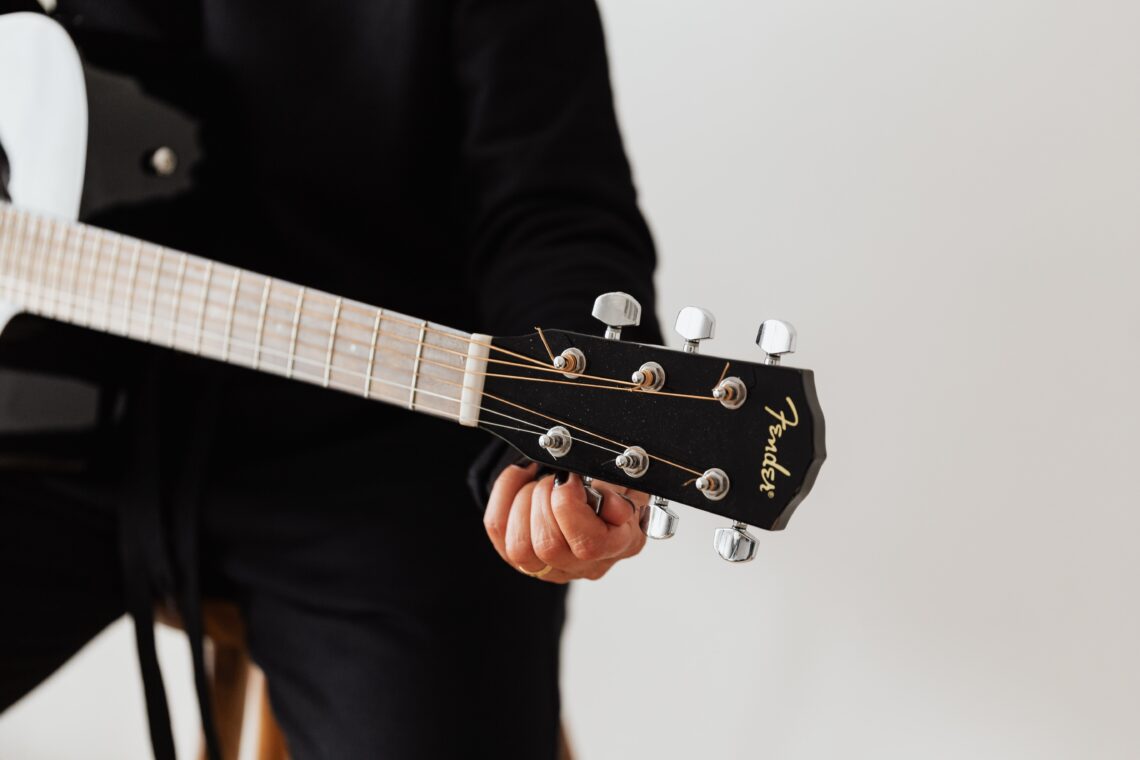
Master Guitar
What Are The 15 Guitar Playing Tips?
Playing guitar is an enjoyable pastime and an excellent way to express oneself through music. However, many people struggle with guitar playing, whether they are beginners or have been playing for a while. Fortunately, there are many tips and tricks that can help anyone improve their guitar playing skills. Now, we will discuss 15 guitar playing tips that can help anyone become a better guitar player.
- Practice regularly
One of the most important things you can do to improve your guitar playing is to practice regularly. Whether it’s 30 minutes a day or a few hours, consistent practice will help you improve your skills.
- Learn the basics
It’s important to start with the basics and learn proper guitar techniques. This includes proper hand placement, finger placement, and proper posture.
- Use a metronome
Using a metronome is a great way to keep time and improve your rhythm. Practice playing along with a metronome to improve your timing and accuracy.
- Learn songs you enjoy
Learning songs you enjoy is a great way to keep yourself motivated and interested in playing guitar. Look up tabs or sheet music for your favorite songs and practice playing along.
- Use a tuner
Keeping your guitar in tune is essential to playing well. Use a guitar tuner to make sure your guitar is in tune before you start playing.
- Experiment with different chords and scales
Learning different chords and scales will help you become a more versatile guitar player. Experiment with different chords and scales to find new sounds and styles.
- Practice fingerpicking
Fingerpicking is a technique where you use your fingers to pluck the strings instead of using a pick. Practice fingerpicking to improve your finger dexterity and create unique sounds.
- Record yourself playing
Recording yourself playing is a great way to hear how you sound and identify areas that need improvement. Use a recording app or software to record yourself playing and listen back to it to identify areas to work on.
- Play with other musicians
Playing with other musicians is a great way to improve your guitar playing skills. Join a band or attend jam sessions to play with other musicians and learn from them. For guitar enthusiasts seeking a comprehensive education, inspiration, and a supportive community, there are institutions with distinguished guitar programs like the famous Berklee College of Music and the New England Conservatory in Boston, MA. These schools offer a wide range of courses tailored to suit various styles and genres, catering to both aspiring professionals and those seeking personal enrichment. Studying at these prestigious music schools shaped the musical careers of countless guitar enthusiasts.
- Use alternate picking
Alternate picking is a technique where you alternate between downstrokes and upstrokes when playing. Practice alternate picking to improve your speed and accuracy.
- Practice bending and vibrato
Bending and vibrato are techniques that can add expression and emotion to your playing. Practice bending notes and using vibrato to create unique sounds.
- Experiment with different effects
Using different effects pedals can help you create unique sounds and styles. Experiment with different effects pedals to find the sound that best suits your playing style.
- Play with dynamics
Playing with dynamics, or the volume and intensity of your playing, can add emotion and depth to your playing. Practice playing with different dynamics to improve your overall sound.
14, Focus on your weaknesses
Identifying your weaknesses and practicing them is essential to improving your guitar playing skills. Identify areas that need improvement and focus on practicing those areas.
- Have fun!
Most importantly, have fun with your guitar playing. Playing guitar should be enjoyable and fulfilling. Don’t get too caught up in technicalities and remember to enjoy the process of learning and playing guitar.
Improving your guitar playing skills takes time and effort, but it can be a rewarding experience. By practicing regularly, learning the basics, experimenting with different techniques, and having fun, anyone can become a better guitar player. Use these 15 guitar playing tips to improve your skills and take your guitar playing to the next level.
Here are some more information about the 15 guitar playing tips.
Practice regularly – Consistent practice is essential for improving your guitar playing skills. Even if you can only practice for a short amount of time each day, regular practice will help you progress and develop your skills.
Learn the basics – Before diving into advanced techniques, it’s essential to learn the basics of guitar playing. This includes proper hand and finger placement, posture, and basic chords and scales. Building a strong foundation will help you develop good habits and improve your playing ability.
Use a metronome – Playing with a metronome can help you improve your timing and accuracy. Start with a slow tempo and gradually increase the speed as you become more comfortable.
Learn songs you enjoy – Learning songs that you enjoy can help keep you motivated and make practicing more fun. Start with easier songs and gradually work your way up to more challenging pieces.
Use a tuner – Keeping your guitar in tune is crucial for sounding good and staying in tune while playing. Use a guitar tuner to make sure your guitar is properly tuned before you start playing.
Experiment with different chords and scales – Learning new chords and scales can help you expand your playing ability and create new sounds. Try playing in different keys and using different chord progressions to create unique sounds.
Practice fingerpicking – Fingerpicking is a popular guitar technique that can add depth and texture to your playing. Start with basic fingerpicking patterns and gradually work your way up to more complex patterns.
Record yourself playing – Recording yourself playing can help you identify areas that need improvement and track your progress over time. Use a recording app or software to record yourself playing and listen back to it to identify areas to work on.
Play with other musicians – Playing with other musicians can help you improve your timing and develop your ear for music. Joining a band or attending jam sessions can also be a great way to learn from other musicians and improve your playing ability.
Use alternate picking – Alternate picking involves alternating between downstrokes and upstrokes when playing. Practicing alternate picking can help improve your speed and accuracy.
Practice bending and vibrato – Bending and vibrato are techniques used to add expression and emotion to your playing. Practice these techniques with different techniques to create unique sounds.
Experiment with different effects – Using effects pedals can help you create new sounds and styles. Experiment with different effects, such as distortion, delay, and reverb, to find the sound that best suits your playing style.
Play with dynamics – Playing with different dynamics, such as playing loud or soft, can add emotion and depth to your playing. Use dynamics to create a sense of tension and release in your playing.
Focus on your weaknesses – Identifying areas that need improvement and focusing on practicing those areas can help you improve your overall playing ability. Whether it’s fingerpicking, alternate picking, or bending, practicing your weaknesses can help you overcome them and become a better guitar player.
Have fun! – Above all, playing guitar should be fun and enjoyable. Don’t get too caught up in technicalities and remember to enjoy the process of learning and playing guitar.
Generated by Chat GPT
